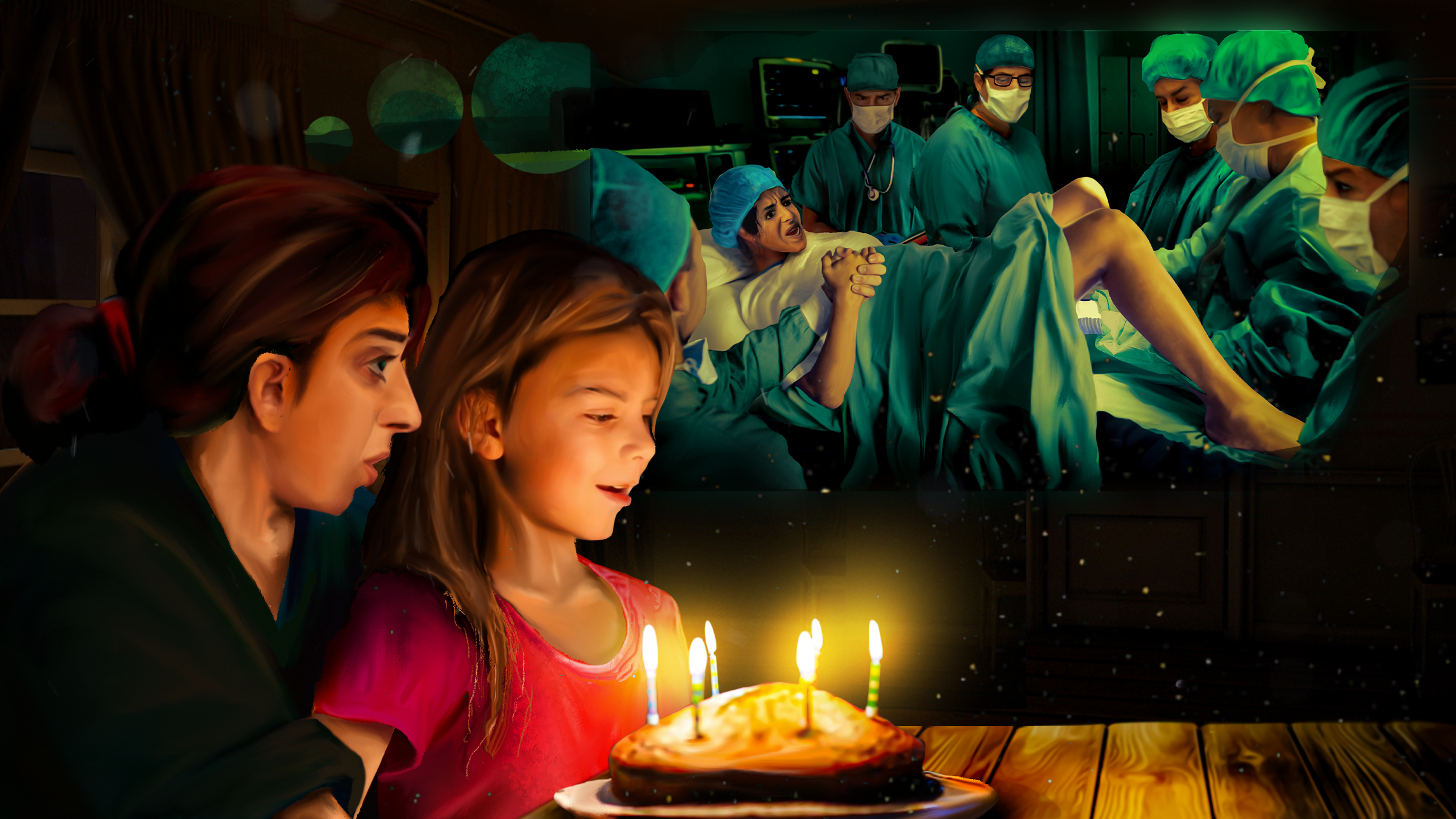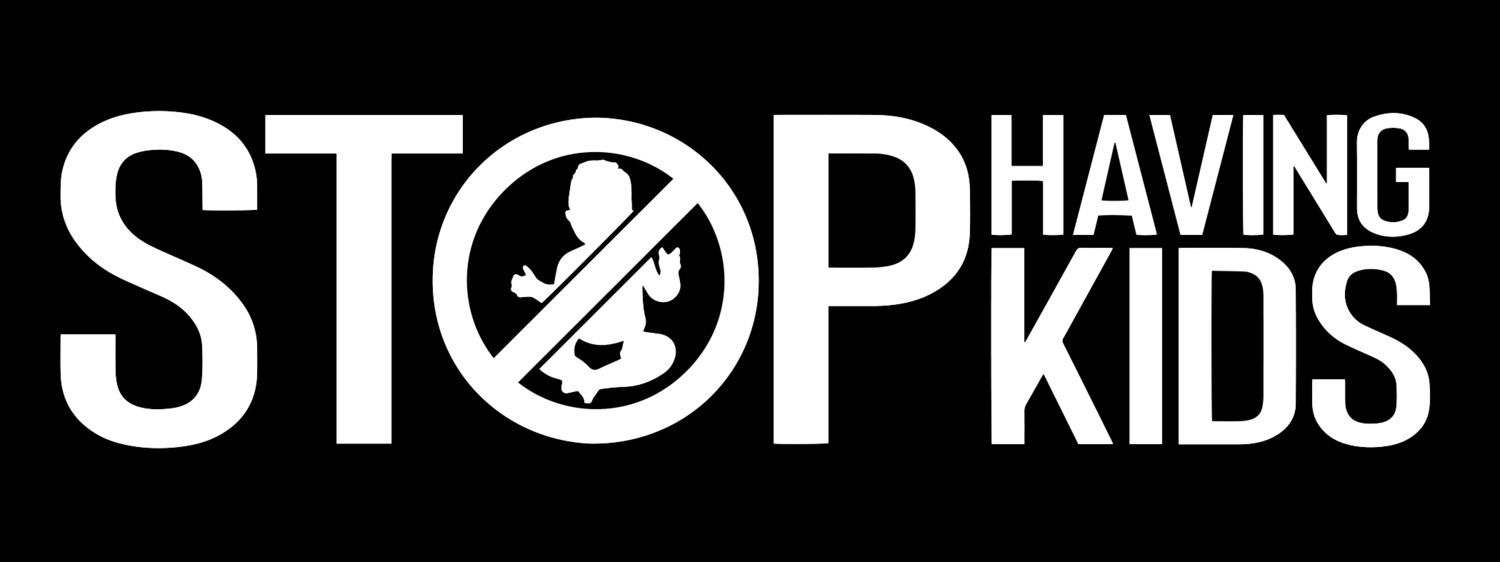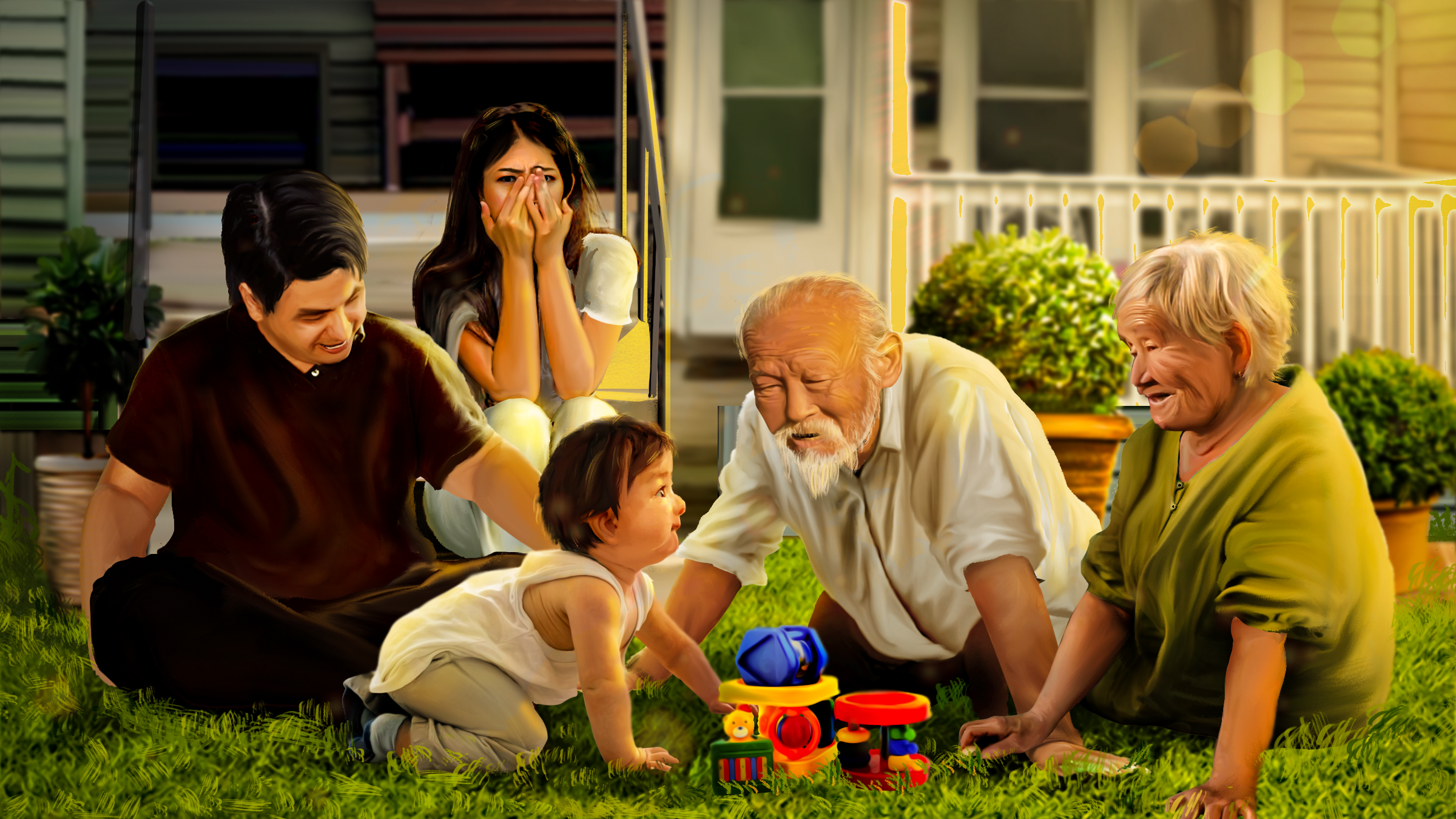
Despite its portrayal as one of the most beautiful and magical experiences a woman can have, the process of birthing a human can be one of the most traumatic and life-threatening events many individuals ever face. Given the reality that physically and psychologically tragic births are not rare, the dangers of giving birth should be widely acknowledged, understood, and considered when deciding to procreate or to remain childfree.
What Is Birth Trauma?
Read More
Birth trauma results from the wounds, serious injuries, or severe damage (that can be physical or psychological) which results from labor, delivery, and/or post-delivery. The trauma can be experienced by one or more people; one giving birth, their partner, their family members, or another witness– but it's by far most often the birthing parent who is inflicted with the greatest trauma. It can be spurred by profound feelings of pain, fear, powerlessness, horror, disregard, and disappointment. Birth trauma can have a significantly negative impact on someone's health and wellbeing for a very long time, and can impair their relationships with other people, including their partner, their children, and their medical providers.
Preterm birth and birth trauma are two of the top three causes of death for children under 5 according to the World Health Organization. Birth trauma is not widely discussed and still carries a stigma, despite being a very common reality childbearing women have experienced globally, no matter what setting they’ve delivered their baby in.
Although many people are not diagnosed by a healthcare professional with birth trauma after their traumatic birth experience, their levels of distress and pain may persist for many years (sometimes even decades) when left untreated. Around 1 in 4 women who experience birth trauma will develop PTSD (post-traumatic stress disorder) and research shows that between 4 and 5% of women who give birth will develop PTSD from the birthing experience.
Many Women Who Have Had Kids State That If People Knew The Reality Of Childbirth Far Fewer Women Would Be Opting For Procreation
Read More
Some people decide to forgo having multiple children because their first or previous birth experience was so damaging and they cannot contemplate enduring another pregnancy and birth. When humans create life they risk subjecting themselves to unimaginable trauma and they nearly guarantee trauma for the human they produce (since all humans are likely to suffer trauma at least some point in their life).
Births are typically considered successful if the mother and baby are physically unharmed– but there's a lot more that can go wrong during the birthing process that is often overlooked and unexamined, such as the subjective experience of the mother. As birth trauma expert Cheryl Tatano Beck states, “Success was defined completely in terms of the outcome of the infant. Mothers’ traumatic experiences of labor and delivery were pushed into the background as a healthy baby took center stage. No one wanted to hear or dwell on all that the mother had endured to give birth. Repeatedly, mothers were told ‘the baby could have died, but is fine. Celebrate and move on.’”
Many mothers struggle to bond with their baby due to their traumatizing birth and symptoms that followed. The emotional, social, and physical wellbeing of their developing child can be hurt from a lack of interaction and bonding at an early stage of life. Lack of attention, support, comfort, and proper nourishment in early years can have devastating lifelong impacts for a young human. This cycle can continue, with the parent feeling worse and worse about their child’s wellbeing, but unable to improve their circumstances due to the parent’s unresolved physical and emotional trauma from birth.
The only true form of prevention from birth trauma is not giving birth in the first place. One can safeguard against pregnancy and birth with proper education, access to effective forms of contraception, abstinence, support from others, and access to safe and affordable or free abortions.
How Common Is Birth Trauma?
Read More
The simple answer is that birth trauma is very common. This might be a surprise given that most people haven’t heard of childbirth being a traumatic experience.
Research from Australia concluded that 1 in 3 women experience a traumatic birth.
A Psychology Today interview with Dr. Rebecca Moore stated that “around 25% of all births in the UK are identified by women as being traumatic.”
A concept analysis published in 2023 indicated that the incidence of birth trauma ranges from 20 to 68% depending on the country.
“ Birth trauma is one of the leading risk factors that can lead to and contribute to anxiety and depression in the postpartum period.”
-PAIGE BELLENBAUM, LMSW MOTHERHOOD CENTER OF NEW YORK FOUNDING DIRECTOR
Who Is More Likely To Be Affected By Birth Trauma Due To Their Background?
Read More
Individuals who were pressured into having kids
Individuals who have tokophobia, a fear of pregnancy and/or childbirth
Individuals who are single
Individuals who had an unintended pregnancy
Individuals who are low-income
Individuals who have anxiety or depression disorders
Individuals who have a history of being victim to sexual abuse
Individuals who aren’t confident in their ability to cope with the physical pain of giving birth
Individuals who have a family history of difficulty with labor
Individuals who lack sufficient parental care and training
Individuals who had complex fertility and pregnancy issues
Individuals who didn’t get adequate exercise during pregnancy
Individuals with a history of psychiatric problems or previous trauma (females with a long history of trauma will be more vulnerable to PTSD following birth if they don't have enough support and care during pregnancy and the birth process)
What Are The Physical Factors That Can Lead To Birth Trauma?
Read More
Being restrained
Too rapid of a birth process
Absence of being given pain relief or ineffectiveness of pain relief that’s been administered
Mother undergoing complications
Baby being born with complications
Neonatal death
Tissue and organ damage
Infections
Levator Ani Avulsion, pelvic floor tearing
Prolapse
Being subjected to unnecessary medical interventions
Taking drugs without informed consent
Not being able to speak due to drugs or overwhelming pain
Pelvic floor muscle injury
Emergency cesarean section surgery
Forceps-assisted delivery
Vaccum-assisted delivery
Very long labor
Giving birth at an older age
Episiotomy, an incision to the tissue of the perineum (space between the vagina and the anus)
First to fourth degree tears
Premature births
Severely high levels of pain
Hemorrhaging
Nerve damage
Physical abuse
Being in a sexually exposed or humiliating position
Vaginal violations
What Are The Psychological Factors That Can Lead To Birth Trauma?
Read More
Strict hospital policies
Not receiving adequate communication or explanations
Mothers being used as learning resources for staff without consent
Fearing for one's life
Fearing for baby's life
Not feeling euphoric over the birthing experience
Resenting the birthing experience for all the pain they just endured
Shame for not falling in love with the baby right away
Not wanting to hold the baby
Thinking that mother or baby's physical or emotional health was in danger
Fear of childbirth
Anxiety about the unknowns
Forced mother and baby separation
Guilt
Unrealistic expectations of what birthing a human will be like
Feeling unheard, ignored, or betrayed
Feeling alone or being alone
Feeling out of control or helpless
Having no say in the decision making and what is done to one’s body
Being objectified
Discrimination
Feeling overwhelmed
Verbal abuse and gaslighting
Having one’s privacy violated
Unfamiliar environment and unfamiliar care staff
Unsympathetic attitudes from health professionals
Feelings of neglect and abandonment
Tense atmosphere
Partner's lack of support
What Are The Physical Symptoms Of Birth Trauma?
Read More
Constant lower back pain
Vaginal or pelvic floor muscle looseness
Sweating
Shaking
Headaches
Dizziness
Gastro-intestinal disruptions
Chest pains
Continuing pain around the site of the episiotomy (a surgical operation to enlarge the vaginal opening for easier childbirth)
Chronic illness
Urinary or fecal incontinence
Difficulty opening and emptying bowels
Physical or psychological difficulty in having sex
Not wanting to have sex
Experiencing less sexual pleasure
A dragging/heavy feeling in the pelvis or a sense that something is ‘falling out’ – this symptom may be increased by standing, lifting, fatigue or during a menstrual cycle
What Are The Psychological Symptoms Of Birth Trauma?
Read More
Crying
Mourning
Feeling broken / not like oneself
Anxiety
Panic attacks
Guilt
Feeling the need to pretend to be happy
Feeling unable to open up about the traumatic events
Feeling unemotional, numb, or detached from social relationships and one's surroundings
Disinterest in social interactions
Drug abuse
Being overprotective and hyper vigilant of one's child
Living the nightmare again on anniversaries of their delivery date
Inability or struggle to bond with baby
Feeling stuck in past events
Painful flashbacks
Sleeplessness and nightmares
Hallucinations
Negative self-image
Suicidal ideation
Feelings of fear, helplessness, or horror in reaction to reminders of the experience itself and things associated with it
Avoidance of triggers like individuals, places, and situations that spark flashbacks
Irritability
Distress
Anger
Postpartum depression
PTSD (Posttraumatic Stress Disorder)
Prevent Birth Trauma
Read More
We can prevent instances of birth trauma by speaking up about this ugly and widespread childbearing reality as well as supporting and empowering those who choose to opt out of procreation. There are all kinds of ways to have relationships with babies and older children without relying on biological birthing; we can foster, adopt, volunteer, babysit, teach, mentor, provide housing, donate, and socialize with children. There is no known desire to come into existence, but plenty of humans (young and old) would love to have their lives vastly improved. Instead of needlessly creating more pain, suffering, and trauma for ourselves and others, why not help to create more joy, satisfaction, and fulfillment by helping already existing individuals who possess real interests, desires, and unmet needs?
Sources and Additional Resources
What Is Birth Trauma? Australian Birth Trauma Association. https://www.birthtrauma.org.au/what-is-birth-trauma
Physical Birth Trauma. (2021, July 21). Australian Birth Trauma Association. https://www.birthtrauma.org.au/physical-birth-trauma
Psychological Birth Trauma. (2020, July 22). Australian Birth Trauma Association. https://www.birthtrauma.org.au/psychological-birth-trauma
Postpartum Trauma Disorders (e.g. PTSD). (2020, May 24). Australian Birth Trauma Association. https://www.birthtrauma.org.au/postpartum-trauma-disorders-e-g-ptsd
Birth Trauma Association. https://www.birthtraumaassociation.org.uk
Beck CT. Middle Range Theory of Traumatic Childbirth: The Ever-Widening Ripple Effect. Global Qualitative Nursing Research. 2015. https://journals.sagepub.com/doi/10.1177/2333393615575313
Beck CT, Watson S, Gable RK. Traumatic Childbirth and Its Aftermath: Is There Anything Positive? J Perinat Educ. (2018, June 27) https://www.ncbi.nlm.nih.gov/pmc/articles/PMC6193358/#bib022
American Psychiatric Association. Just a moment. . .What Is Posttraumatic Stress Disorder (PTSD)? https://www.psychiatry.org/patients-families/ptsd/what-is-ptsd
Older children and young adolescent mortality (5 to 14 years). World Health Organization. https://www.who.int/news-room/fact-sheets/detail/older-children-and-young-adolescent-mortality-(5-to-14-years)
Pelin Dikmen Yildiz, Susan Ayers, Louise Phillips. (2017) The prevalence of posttraumatic stress disorder in pregnancy and after birth: A systematic review and meta-analysis. Journal of Affective Disorders, Volume 208, Pages 634-645. https://www.sciencedirect.com/science/article/pii/S0165032716306814 Accepted version of the paper: https://openaccess.city.ac.uk/id/eprint/15947/3
Clara-Sophie Heyne, Maria Kazmierczak, Ronnie Souday, Danny Horesh, Mijke Lambregtse-van den Berg, Tobias Weigl, Antje Horsch, Mirjam Oosterman, Pelin Dikmen-Yildiz, Susan Garthus-Niegel. (2022) Prevalence and risk factors of birth-related posttraumatic stress among parents: A comparative systematic review and meta-analysis. Clinical Psychology Review, Volume 94. https://www.sciencedirect.com/science/article/pii/S0272735822000423
Sun, Xiaoqing & Fan, Xuemei & Cong, Shengnan & Wang, Rui & Sha, Lijuan & Xie, Hongyan & Han, Jingjing & Zhu, Zhu & Zhang, Aixia. (2023). Psychological birth trauma: A concept analysis. Frontiers in Psychology. 13. 1065612. 10.3389/fpsyg.2022.1065612.
Creedy, D.K., Shochet, I.M. and Horsfall, J. (2000), Childbirth and the Development of Acute Trauma Symptoms: Incidence and Contributing Factors. Birth, 27: 104-111. https://doi.org/10.1046/j.1523-536x.2000.00104.x
Shortsleeve, C. (2022, December 18). All Birth Trauma is Valid: How to Get the Support You Need. Parents. https://www.parents.com/pregnancy/giving-birth/labor-support/all-birth-trauma-is-valid-heres-how-to-have-it-recognized-and-get-the-support-you-need
Yildiz, P. D., Ayers, S. & Phillips, L. (2017). The prevalence of posttraumatic stress disorder in pregnancy and after birth: A systematic review and meta-analysis. Journal of Affective Disorders, 208, pp. 634-645. doi: 10.1016/j.jad.2016.10.009
Birth World. (2021, September 10). Understanding objectification of women in maternity care. https://birthworld.substack.com/p/understanding-objectification-of
ABC News, & Woolard, A. (2022, December 15). We need to support women after birth trauma, and not just for the sake of mothers. https://www.abc.net.au/news/health/2022-12-16/birth-trauma-effects-relationships-women-baby-support/101737460
ABC Everyday & Jennings-Edquist, G. (2021, August 9). Birth trauma is a “silent pain” suffered by one in three women. A https://www.abc.net.au/everyday/birth-trauma-suffered-by-one-three-yet-still-considered-taboo/100344660
Jain, S., M. D. (2016, August 31). Perinatal Psychiatry, Birth Trauma & Perinatal PTSD, Part 1. Psychology Today. https://www.psychologytoday.com/us/blog/the-aftermath-trauma/201608/perinatal-psychiatry-birth-trauma-perinatal-ptsd-part-1
Jain, S., M. D. (2016, September 7). Perinatal Psychiatry, Birth Trauma & Perinatal PTSD, Part 2. Psychology Today. https://www.psychologytoday.com/us/blog/the-aftermath-trauma/201609/perinatal-psychiatry-birth-trauma-perinatal-ptsd-part-2
Ertan, D., Hingray, C., Burlacu, E. et al. Post-traumatic stress disorder following childbirth. BMC Psychiatry 21, 155 (2021). https://doi.org/10.1186/s12888-021-03158-6
Homer AO, C., & Wilson, A. (2018). Perineal Tears: A literature review. Australian Commission on Safety and Quality in Health Care. https://www.safetyandquality.gov.au/sites/default/files/2021-05/perineal-tears-literature-review.pdf
Australian Birth Stories. Podcast: Birth Trauma Experiences. https://australianbirthstories.com/podcasts/birth-trauma




















